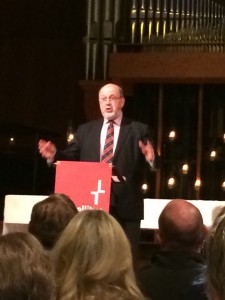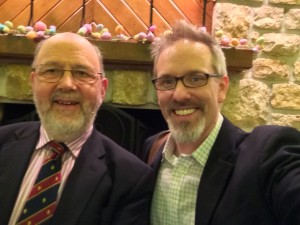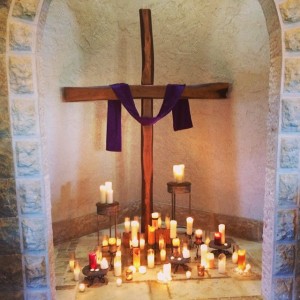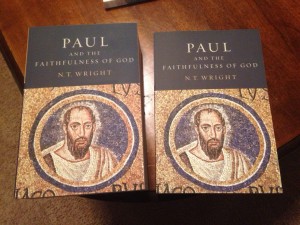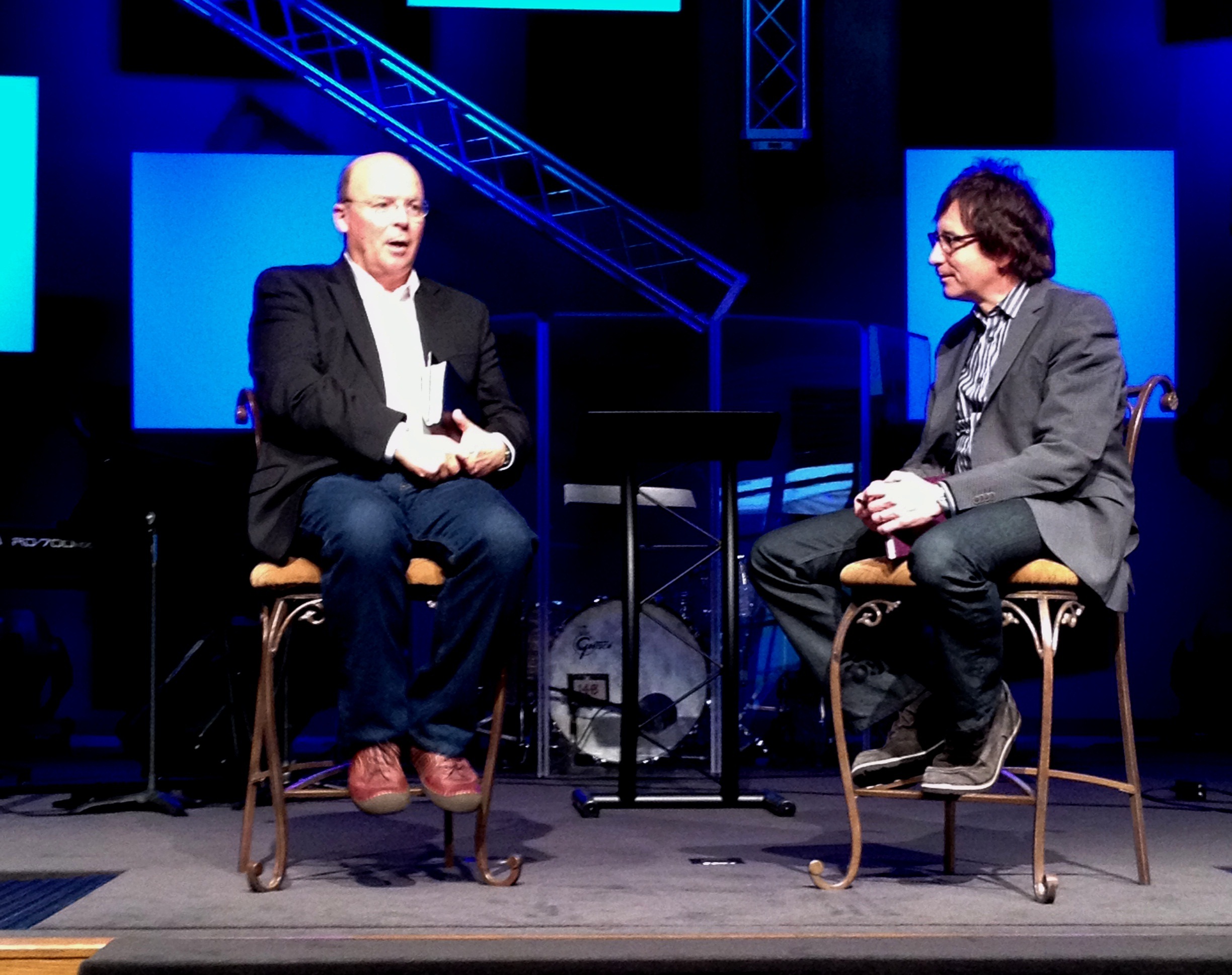N.T. Wright and the Faithfulness of Paul: Part 1: Charting the Course
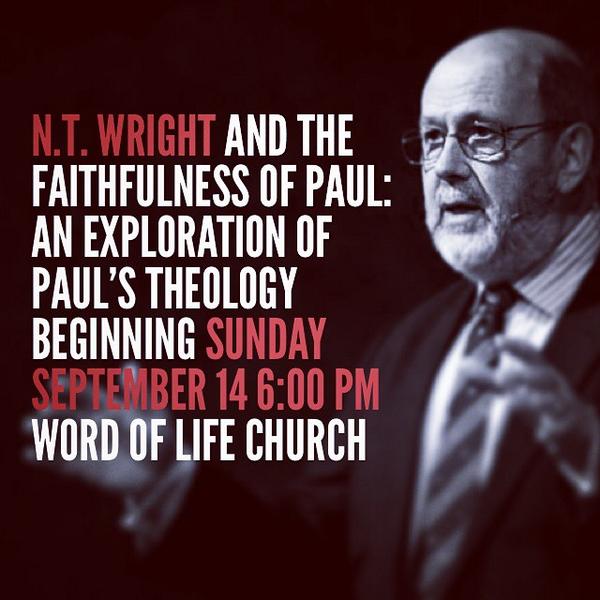 Last year the church was given a great gift. N.T. (Tom) Wright finally published his 40-year labor of love, his definitive and substantial book on the theology of Paul entitled Paul and the Faithfulness of God. I started reading it on the first Sunday of Advent and attempted to finish by Easter Sunday. I am still finishing up the last section, but I have been spending weeks going back through the book, outlining it for a lecture-style small group beginning this Sunday at my church.
Last year the church was given a great gift. N.T. (Tom) Wright finally published his 40-year labor of love, his definitive and substantial book on the theology of Paul entitled Paul and the Faithfulness of God. I started reading it on the first Sunday of Advent and attempted to finish by Easter Sunday. I am still finishing up the last section, but I have been spending weeks going back through the book, outlining it for a lecture-style small group beginning this Sunday at my church.
Tom has interpreted Paul for us.
Now I want to interpret Tom for you.
My goal is to outline the book in nine parts making this massive 1,700+ page book accessible. I have titled my outline “N.T. Wright and the Faithfulness of Paul” underscoring one of the key components of N.T. Wright’s vision of Paul’s theology: faithfulness. The faithfulness of Jesus demonstrates God’s faithfulness to his creation and to his covenant with Abraham. Paul embodies such faithfulness as he reworks and re-imagines some things in light of the coming of Jesus the Messiah and the Spirit. Specifically Paul redefines what it means for the one God of Israel to work through his people to renew and restore his world.
The outline is more than half way done. I have completed the first five parts, which covers approximately 900 pages of the book. The outline covers many of the key conclusions N.T. Wright reaches and some (but not all) of the key pieces of evidence he calls upon. I will make the complete outline available as a PDF as soon as it is complete, but I will post each part as a new blog post, each week including the first part which is a general introduction to N.T. Wight and the book.
N.T. Wright and the Faithfulness of Paul
Part 1: Charting the Course
Paul and the Faithfulness of God, Chapter 1
I. An Introduction to N.T Wright
N.T. “Tom” Wright is hands-down the most important theological voice in the church today.
A. Christianity Today article
He made the cover of Christianity Today in April 2014. In the cover story, UMC Pastor Jason Byassee writes: “People who are asked to write about N. T. Wright may find they quickly run out of superlatives. He is the most prolific biblical scholar in a generation. Some say he is the most important apologist for the Christian faith since C. S. Lewis. He has written the most extensive series of popular commentaries on the New Testament since William Barclay. And, in case three careers sound like too few, he is also a church leader, having served as Bishop of Durham, England, before his current teaching post at the University of St. Andrews in Scotland. But perhaps the most significant praise of all: When Wright speaks, preaches, or writes, folks say they see Jesus, and lives are transformed.” (Christianity Today, April 2014, Vol. 58, No. 3, Pg 36, “Surprised by Wright” )
I agree. I am not the most objective reader of Tom Wright. I consider him to be my primary theology mentor because in him I see Jesus, because in him I see a love for the church.
More from the Byassee article: “‘I have always had a high view of the Scriptures and a central view of the Cross,’ Wright says. He insists repeatedly that any theory advanced about Paul must be tested with actual exegesis, and he reads the Scriptures as someone happy to be doing so. Most scholars talk about other scholars. Only a blessed few talk about the Bible. Fewer still talk about God. Wright, while standing on the shoulders of many great scholars, tries to talk about God. And he speaks and writes with an urgency that suggests every sentence is even more essential than the last.”
B. Professional biography
-
BA in classics and BA in theology (Oxford)
-
MA with a focused study on Anglican ministry (Oxford)
-
DPhil (Oxford) Dissertation: “The Messiah and the People of God: A Study in Pauline Theology with Particular Reference to the Argument of the Epistle to the Romans”
-
Lectured at McGill University (Montreal, Canada) (1981-1986)
-
Lectured at Oxford (1986-1993)
-
Dean of Lichfield Cathedral (1994-1999)
-
Canon Theologian of Westminster Abbey (2000-2003)
-
Bishop of Durham (2003-2010)
-
Research Professor of New Testament and Early Christianity at St. Andrews (Scotland) (2010 – present)
-
Publications: Nearly 50 books, a complete N.T. commentary series, an original translation of the New Testament, and numerous articles, essays, lectures, and sermons over 40 years (for more information see http://ntwrightpage.com)
C. His primary focus
Wright has spent his career focusing on themes related to Jesus, the gospels, and Paul. He writes from the perspective of a historian, paying very close attention to the historical context of the biblical writers.
II. Paul and the Faithfulness of God
Wright’s magnum opus (Latin for “great work”) is Paul and the Faithfulness of God, affectionately known as the “big book on Paul.” This book is the fourth in a series of scholarly books on Christian origins.
A. Roadmap for navigating through the book
1. Paul’s World (Part 2)
a. Introduction
b. Paul’s Jewish world
c. Ancient Philosophy in a Greek world
d. First-century Empire in a Roman world
2. Paul’s Worldview (Part 3)
a. The convergence of three worlds
b. Worldview: defined by praxis (practice), symbol, story, and question
+ Praxis: What were the common practices in Paul’s world?
+ Symbol: What key symbols filled Paul’s world?
+ Story: What narratives shaped Paul’s imagination?
+ Question: What were the BIG questions people were asking in Paul’s world?
3. Paul’s Theology
a. Monotheism freshly revealed: What’s it mean for the God of Israel to be one? (Part 4)
b. Election freshly reworked: Who are the covenant-people of God? (Parts 5-6)
c. Eschatology freshly imagined: What is God’s future for the world? (Parts 7-8)
4. Paul in His World (Part 9)
a. Paul and empire
b. Paul and religion
c. Paul and philosophy
d. Paul in his Jewish world
e. Conclusions
B. Philemon: A little window into the heart and mind of Paul
“Paul’s Jewish worldview, radically reshaped around the crucified Messiah, challenges the world of ancient paganism with the concrete signs of the faithfulness of God. That is a summary both of the letter to Philemon and of the entire present book.” (21)
Onesimus was a slave in the home of Philemon and had met Paul and become a Christian. Wright calls Onesimus more of a “wandering slave” than a “runaway slave.” Paul writes a letter to Philemon asking him to take Onesimus back, not as a slave, but as a “beloved brother” (Philemon 1:16).
This scene in the ministry of Paul is a peek into his central themes throughout his letters: reconciliation, unity, and partnership (koinonia) through Jesus the Messiah.
“Why would Philemon and Onesimus be motivated to go along with this costly and socially challenging plan? Answer: because of the implicit theology. Because of who God is. Because of the Messiah. Because of his death. Because of who ‘we’ are ‘in him,’ or growing up together ‘into him.’ Because of the hope.” (30)
C. Worldview and theology
Paul’s theology (what he believed about God and God’s world) was dependent upon and shaped by his worldview (how he saw the world).
1. N.T Wright’s “new perspective” on Paul
What is at the heart of Paul’s theology? For the Protestant reformers, the heart of Paul’s theology was justification by faith in the context of salvation. Other themes in Paul’s writings were tangential and peripheral. Wright challenges not only the centrality of justification by faith in Paul’s theology, but challenges the reformed (Lutheran & Calvinistic) interpretations of the Paul.
This challenge has been called the “New Perspective on Paul.”
New Perspective on Paul |
Old Perspective on Paul |
|
Paul’s theology is driven by ecclesiology. |
Paul’s theology is driven by soteriology. |
|
Justification is both juridical and participatory. |
Justification is primarily juridical. |
|
Justification is the declaration of membership in God’s covenant family. |
Justification is the declaration of a right relationship with God. |
|
Judaism was a religion of grace. |
Judaism was a religion of legalism. |
|
Paul redefines Jewish thought/categories. |
Paul rejects Jewish thought/categories. |
|
Righteousness is “covenant faithfulness.” |
Righteousness is a moral quality or legal standing. |
|
God’s righteousness is his faithfulness to his covenant with Abraham. |
God’s righteousness is his moral integrity. |
|
We embody God’s righteousness. |
We receive the imputation of Christ’s righteousness. |
|
The Gospel is the proclamation of Christ’s lordship through his death, resurrection, and ascension. |
The Gospel is the proclamation of justification by faith through grace communicated through the shed blood of Jesus Christ. |
2. Methods to understanding Paul’s theology
a. History: Paul in the setting of second temple Judaism (Jewish, Roman, Greek influences)
b. Exegesis: Interpreting Paul’s writings in the light of Paul’s historical context
c. Application/relevance: How Paul was understood by his contemporaries?
3. Methods to understanding Paul’s worldview
a. Praxis: What were the common practices in Paul’s world?
b. Symbol: What key symbols filled Paul’s world?
c. Story: What narratives shaped Paul’s imagination?
d. Question: What were the BIG questions people were asking in Paul’s world?
4. The contrast
Theology is our core beliefs about God, his world, and the people he has created. Worldview is the way we look at the world, how we assign value to things (or people), how we prioritize and categorize thoughts. Theology are the constructed evaluations we have made or accepted based on our worldview. Theology is conscious. Worldview is subconscious. Theology is the evaluation of what we are looking at. Worldview is what we are looking through.
D. Final thoughts
N.T. Wright envisions Paul and the Faithfulness of God to be an attempt to reconcile theology and history. The predominant modern Protestant interpretation of Paul was based in 16th century issues. Wright wants to revisit Paul in the context of the first century. “We must stop giving nineteenth-century answers to sixteenth-century questions and try to give twenty-first-century answers to first-century questions.” – N.T. Wright, Surprised by Scripture (2014), 26
